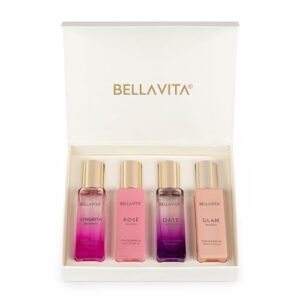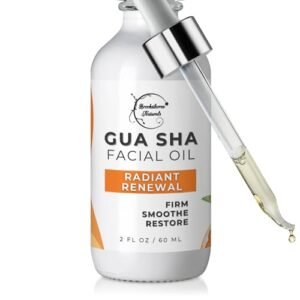Collagen Supplements vs. Topical Treatments
As we navigate the journey of aging, the desire for healthy, youthful skin often drives us to seek out effective solutions. With countless products promising miraculous results, it can be overwhelming to choose the right ones for our skincare routines. Among the most popular options are collagen supplements and topical treatments, both of which claim to enhance skin appearance and elasticity. In this post, we’ll delve into the pros and cons of each approach, helping you understand how they work, their effectiveness, and which might be best suited to meet your skin’s unique needs. Let’s empower ourselves to make informed choices on our path to radiant skin.



Understanding Collagen and Its Role in Skin Health
Collagen is more than just a buzzword in the beauty industry; it’s a crucial protein that plays a fundamental role in our body’s structure, particularly within the skin. As we delve deeper into the world of collagen, we will uncover how it contributes to skin elasticity and firmness, the impact of aging on its production, and available collagen supplements that promise to enhance our skin health.
What is Collagen?
Collagen is a fibrous protein that constitutes a significant portion of our skin, bones, muscles, and connective tissues. It’s essentially the scaffolding that provides our skin with strength and elasticity. Comprising up to 30% of the body’s protein content, collagen types I, II, and III are particularly important for skin health.
- Type I: The most abundant collagen in the skin, type I helps maintain skin firmness and elasticity.
- Type II: Primarily found in cartilage, less critical for skin but important for joint health.
- Type III: Works alongside type I to give skin its structure, often found in young skin.
The Natural Role of Collagen in Maintaining Skin Health
Collagen serves as the foundation for skin structure. Its fibers create a network that holds skin cells together, allowing the skin to remain taut and resilient. Here’s how collagen directly impacts our skin:
- Elasticity: Collagen fibers allow the skin to stretch and bounce back after movement.
- Firmness: A collagen-rich skin layer keeps it youthful, preventing sagging and wrinkles.
- Hydration: Collagen helps retain moisture in the skin, keeping it plump and healthy.
As we age, however, the natural production of collagen declines, starting as early as our mid-20s. Research indicates that our bodies produce about 1% less collagen every year after this peak. This decline leads to noticeable changes:
- Increased fine lines and wrinkles
- Reduced skin elasticity and firmness
- Thinner, more fragile skin
The Impact of Aging on Collagen Production
As collagen production slows, several skin-related issues often arise, including:
- Wrinkles: The loss of collagen contributes to the appearance of fine lines and deeper wrinkles.
- Sagging: Decreased collagen leads to a loss of skin structure, resulting in sagging skin.
- Dryness: With less collagen to maintain moisture, the skin can become dry and flaky.
How Environmental Factors Accelerate Collagen Loss
In addition to aging, several factors can accelerate collagen degradation:
- Sun Exposure: UV rays can break down collagen at a cellular level.
- Pollution: Environmental pollutants can generate free radicals, leading to collagen degradation.
- Smoking: Inhibits blood flow and oxygen supply to the skin, inhibiting collagen production.
Different Types of Collagen Supplements
Given the integral role collagen plays in skin health, many people turn to supplements to restore and boost their collagen levels. Collagen supplements come in various forms, each with its unique benefits. Here’s a breakdown of the most common types:
| Supplement Type | Description | Examples | Benefits |
|---|---|---|---|
| Powders | Easy to mix with liquids or foods; typically flavorless | Vital Proteins Collagen Peptides | Digestible and convenient; supports skin elasticity. |
| Pills/Capsules | Convenient for on-the-go consumption | NeoCell Super Collagen | Portable; good for those who dislike mixing powders. |
| Liquid Drinks | Ready-to-drink, often contain added vitamins | Skinade | Enhanced absorption; usually tastes pleasant. |
Notable Products to Consider
- Vital Proteins Collagen Peptides: A popular powder form that mixes well with smoothies, coffee, or even baked goods. It contains types I and III collagen and is rich in amino acids.
- NeoCell Super Collagen: Available in easy-to-swallow tablets, this supplement supports skin and joint health by delivering collagen types I and III, promoting smoother skin.
- Skinade: This liquid drinkable collagen supplement combines collagen with essential vitamins and nutrients meant for optimal absorption, delivering an effective boost to skin health.
The Science Behind Collagen Supplements
Many studies have examined the effects of collagen supplementation on skin health, showing promising results:
- Increased Hydration: A 2015 study found that participants who supplemented with collagen had significantly improved skin hydration levels within 4 weeks.
- Reduction in Wrinkle Depth: Research published in Skin Pharmacology and Physiology demonstrated that collagen hydrolysate supplementation led to a reduction in wrinkle depth and an increase in skin elasticity after 8 weeks of continuous use.
- Enhanced Skin Elasticity: A trial conducted in Nutrition Journal showed that regular intake of collagen peptides led to improved overall skin elasticity and provided a youthful appearance.
These studies suggest that including collagen supplements in your daily regimen can lead to tangible improvements in skin health and appearance, offering a potential solution for combatting the visible signs of aging.
Exploring Topical Treatments for Collagen Boosting
Collagen is the backbone of youthful skin, providing structure, firmness, and elasticity. As we age, collagen production naturally declines, leading to wrinkles, sagging, and other signs of aging. Fortunately, various topical treatments can help boost collagen production and enhance the skin’s appearance and texture. In this section, we will explore some of the most effective and popular options available today, including retinoids, peptides, and vitamin C serums.
Retinoids: The Gold Standard in Anti-Aging
What Are Retinoids?
Retinoids are derivatives of vitamin A and are renowned for their ability to promote cell turnover, increase collagen production, and improve skin texture. They work by stimulating the skin’s inner layers, leading to increased collagen synthesis.
How They Work:
Retinoids penetrate the skin and bind to specific receptors, promoting the differentiation of skin cells and enhancing cellular communication. This process encourages the production of new collagen and even helps in reducing the appearance of fine lines and pigmentation.
Popular Products:
- Retinol 0.5% by Skinceuticals: This formulation offers a high concentration of retinol for significant results while remaining appropriate for sensitive skin.
- Differin Gel (Adapalene 0.1%): Originally available only via prescription, it is now available over the counter and is effective for both acne treatment and anti-aging benefits.
Key Benefits of Retinoids:
- Boosts collagen production
- Reduces fine lines and wrinkles
- Improves skin texture and tone
- Minimizes pigmentation issues
Peptides: Building Blocks of Skincare
What Are Peptides?
Peptides are short chains of amino acids that serve as the building blocks of proteins, including collagen. They function as messengers to signal skin cells to produce more collagen and elastin, leading to firmer, more resilient skin.
How They Work:
When applied topically, peptides penetrate the skin’s barrier, prompting the skin to replenish its collagen levels. They also have antioxidant properties, helping to defend against free radical damage.
Popular Products:
- The Ordinary “Buffet”: This serum includes a comprehensive array of peptides and amino acids designed to improve overall skin health and vitality.
- Drunk Elephant Protini Polypeptide Cream: Packed with peptides, this moisturizer supports skin structure and moisture balance, promoting a youthful appearance.
Key Benefits of Peptides:
- Stimulates collagen production
- Improves skin hydration and elasticity
- Enhances skin barrier function
- Reduces the appearance of wrinkles
Vitamin C Serums: The Antioxidant Powerhouse
What is Vitamin C Serum?
Vitamin C is a potent antioxidant that protects the skin from environmental stressors while also stimulating collagen production. This nutrient is essential for the collagen synthesis process, promoting healthy and radiant skin.
How They Work:
When applied topically, vitamin C penetrates the skin and helps inhibit the enzyme responsible for collagen breakdown. It also aids in repairing damaged skin and enhancing overall skin tone.
Popular Products:
- SkinCeuticals C E Ferulic: Renowned for its powerful formulation, this serum combines vitamin C with vitamin E and ferulic acid for maximum antioxidant protection and collagen stimulation.
- Mad Hippie Vitamin C Serum: A budget-friendly option enriched with vitamin C and other skin-loving ingredients like hyaluronic acid and vitamin E.
Key Benefits of Vitamin C Serums:
- Protects against free radical damage
- Enhances collagen production
- Brightens skin tone and diminishes dark spots
- Improves overall skin texture
The Importance of Consistency and UV Protection
To achieve the best results with these topical treatments, a consistent skincare routine is essential. Here are a few tips to help you maximize the benefits of collagen-boosting products:
- Daily Application: Integrate retinoids, peptides, or vitamin C serums into your daily routine. Most experts recommend applying active ingredients in the evening, especially retinoids.
- Layering Products: You can layer different products for enhanced efficacy. For example, follow your vitamin C serum with sunscreen in the morning and your retinoid at night.
- Regular Use of Sunscreen: UV radiation is a significant contributor to collagen breakdown. Use a broad-spectrum sunscreen with SPF 30 or higher daily, such as Neutrogena Ultra Sheer Dry-Touch Sunscreen or La Roche-Posay Anthelios Melt-in Milk Sunscreen, to protect your skin from harmful rays.
Comparison Table: Top Collagen-Boosting Treatments
| Treatment Type | Key Ingredients | Target Issues | Popular Products |
|---|---|---|---|
| Retinoids | Retinol, Tretinoin | Fine lines, uneven texture | Skinceuticals Retinol 0.5%, Differin Gel |
| Peptides | Various peptides and amino acids | Wrinkles, loss of elasticity | The Ordinary “Buffet”, Drunk Elephant Protini |
| Vitamin C | L-Ascorbic Acid, Vitamin E, Ferulic Acid | Dullness, dark spots | SkinCeuticals C E Ferulic, Mad Hippie Serum |
Incorporating these topical treatments into your skincare routine can lead to significant improvements in skin appearance and texture. With careful selection and consistent application, you can help stimulate collagen production and maintain a youthful, radiant complexion.
Evaluating Effectiveness for Optimal Skin Health
In summary, while collagen supplements and topical treatments each provide distinct advantages for combating aging, their efficacy often depends on individual skin types and personal goals. We recommend that readers evaluate their specific skincare needs, seek advice from professionals, and consider a combined approach for the best outcomes in their anti-aging journey.
11 Comments
Comments are closed.



I wonder if there’s a difference in effectiveness between marine vs. bovine collagen. Anyone done some research on this?
That’s a very valid point! Marine collagen is often praised for its bioavailability, but it’s always good to compare. I may look into this for a deeper discussion in future posts.
Did you mention that Vitamin C is crucial for collagen synthesis? It’s like the best buddy for collagen — both from supplements and topical treatments!
I’ve been taking Vital Proteins Collagen Peptides for about 6 months now, and I can honestly say my skin looks so much better! It’s like a glow-up in a scoop! Anyone else had similar results?
I’d love to see an article on the best foods to naturally boost collagen production. Seems like a great topic to dive into!
Great suggestion! I’ll definitely consider that for a future article. Nutrition plays such a crucial role in skin health.
Anyone tried the Drunk Elephant C-Firma Day Serum? I’ve heard it’s amazing for boosting collagen in the skin. What do you think?
Drunk Elephant is highly regarded for its quality! Many people rave about it. It could be a great addition to your skincare routine!
That’s awesome to hear! Vital Proteins is a popular choice, and many users report similar results. Thanks for sharing your success story!
I started using a topical retinol alongside my collagen supplement, and OMG, my skin has never been happier! Definitely a real-world win for me!
That’s fantastic! Combining treatments can often enhance results. Thanks for sharing what worked for you!